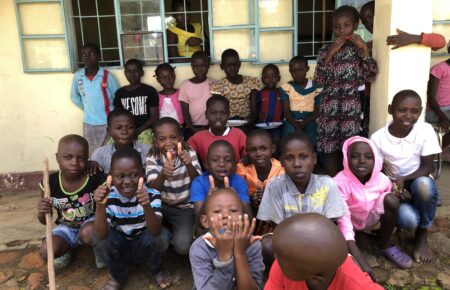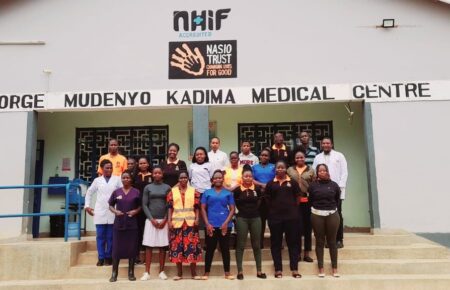Sustainable Agriculture
The Nasio Trust currently supports over 1,285 small-scale farmers in Mumias West-Sub County. Our goal is to ensure that the community we work in
- Has access to cheap, and locally-sourced food
- Is self-sufficient in food including grains, vegetables, and fruits
- Is part of a strong food system
- Has developed climate-change mitigation skills
Through our partnership with the One Acre Fund, the World We Want Foundation, Global Foods, and Sankalpa the charity provides farmers with the following to ensure higher yields and better income:
- Farm inputs such as seeds and fertilisers
- Training in irrigation and sowing techniques
- Training in table banking
- Support with accessing market and value chains
- Access to a bereavement fund
The Muslim farmers we support also donate a portion of their yields to members of the community who may be in need, as part of their zaakat or religious charitable donation.
Young Farmers Club
The Young Farmers Club (YFC) has trained 128 young people in partner schools to set-up their own kitchen gardens to grow vegetables and reduce dependence on food bought elsewhere. We also have our own kitchen gardens at the Noah’s Ark and St Irene’s ECD centres to help supplement the meals we provide our beneficiaries. Guardians of beneficiaries tend to the crops rotationally to develop their own skills and to give back to the community.
Combatting Climate Change
The Nasio Trust recognises the adverse effect of climate change and unpredictable weather patterns on small farmers and rural people at-large. Poor crop yields push people into situations of hunger and poverty, with increase in school drop-outs, risky sexual behaviour, and poor overall health.
To mitigate these effects, our sustainable agriculture projects aim to provide training to our beneficiaries in climate change and incorporate regenerative agricultural techniques such as composting, crop rotation, and agroforestry into our programmes.
Click here to make a donation now to support our farming projects and ensure that rural communities can develop sustainable food sources.



